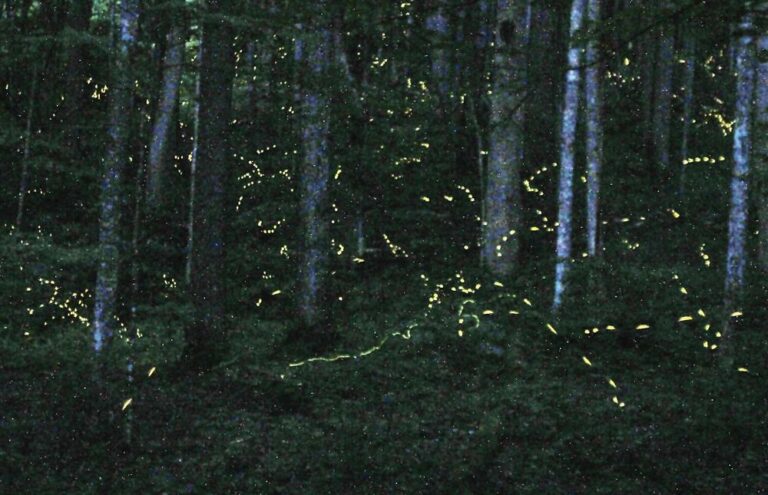Researchers from the University of Colorado are studying the Great Smoky Mountains’ synchronous fireflies to determine whether understanding the way they communicate could help with developing robot communication.
The fireflies “need to solve complex problems while communicating in large groups, which is something computers need to do,” Orit Peleg, a computer scientist from the University of Colorado at Boulder, told the Knoxville News Sentinel. “So maybe there’s something interesting we can learn about them and apply to man-made systems.”
Semi-autonomous robots communicating with flashes of infrared light could be used to locate victims after a natural disaster, for example.
The researchers who sojourned to the park on the Tennessee-North Carolina border earlier this month to study the fireflies at their peak included graduate student Owen Martin and postdoctoral researcher Raphael Sarfati. Their research combines computer science, physics, engineering and biology.
The coordination it takes for thousands of fireflies to flash together isn’t well understood. A cluster of fireflies will link up. Other fireflies farther away will follow suit. The synchronization radiates like ripples on a pond.
Male fireflies hover and flash to signal females. The females rest on the ground and return flashes to the correct species of males. It is thought synchronization helps this species of fireflies distinguish itself from other species with different patterns of flashes.
As part of the study, the Martin said he would catch several male fireflies and attempt to get them to synchronize their flashes with a flashing LED.
“We’re going to start flashing like a firefly next to a real firefly and see how they interact,” Martin said. “We’re trying to see if we can train a periodic signal in the fireflies.”
Meanwhile Sarfati said he would record the flashing with 360-degree cameras to study how it spreads.
“I’m interested in trying to be as not-interfering as possible with the natural world,” Sarfati said. “I like to see what happens in an unperturbed environment.”
Peleg said the flashing is like Morse code, and the signal is probably as close to computer language as any communication among living things gets.
“It really is a gold mine because there’s so much we don’t know,” Peleg said.
(AP)











